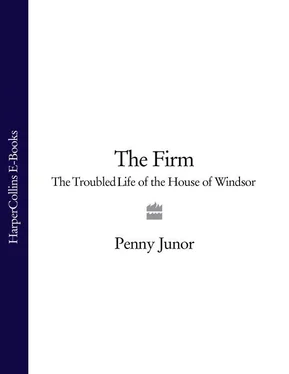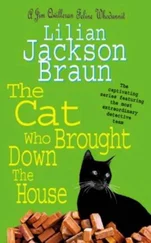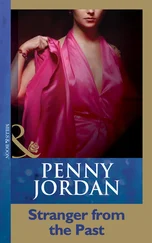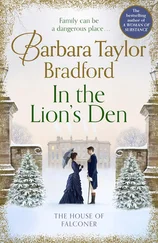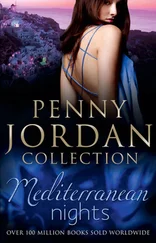The fact that, when asked on television on the day of the engagement whether he was in love, he replied ‘Yes, whatever love is’, is irrelevant. It was a very tactless thing to say, hurtful to Diana and bad PR, and he should never have said it; but the truth is this was a marriage where being in love was not the most important ingredient. This was a marriage that had to last – look at the number of ordinary marriages that have fallen apart when the pair stopped being ‘in love’ and discovered that there was nothing else holding them together. Look at the number of innocent children who have suffered as a result. The Prince’s own thoughts about this, articulated years earlier, have been quoted many times before but they cannot be bettered:
I’ve fallen in love with all sorts of girls and I fully intend to go on doing so, but I’ve made sure I haven’t married the first person I’ve fallen in love with. I think one’s got to be aware of the fact that falling madly in love with someone is not necessarily the starting point to getting married. [Marriage] is basically a very strong friendship … I think you are lucky if you find the person attractive in the physical and the mental sense … To me marriage seems to be the biggest and most responsible step to be taken in one’s life.
Whatever your place in life, when you marry, you are forming a partnership which you hope will last for fifty years. So I’d want to marry someone whose interests I could share. A woman not only marries a man; she marries into a way of life – a job. She’s got to have some knowledge of it, some sense of it, otherwise she wouldn’t have a clue about whether she’s going to like it. If I’m deciding on whom I want to live with for fifty years – well, that’s the last decision on which I want my head to be ruled by my heart.
So what went wrong? Why did Charles allow himself to make what, by the time he walked up the aisle, he knew was the wrong decision? He took advice before he proposed, but once he had asked Diana to marry him the subject was no longer open for discussion. His old friend Nicholas Soames could see disaster ahead; what worried him was the intellectual gulf between them and the fact that they had so little in common. Penny Romsey, wife of his cousin Norton (Lord Romsey), Mountbatten’s grandson, had an additional fear. She thought that Diana was in love with the idea of being a princess and had very little understanding of what that would involve. Norton agreed with all three observations and had very real fears for the future. He tackled the Prince on several occasions but was firmly told to mind his own business. None of them had the influence over him that Mountbatten had had. Mountbatten was like a father to the Prince – he called him his ‘Honorary Grandfather’ – and although Mountbatten was ambitious on his own behalf and would have dearly loved his own granddaughter to marry Charles, he would have seen that Diana was the wrong person for him to be bound to for fifty years or more. But Mountbatten was dead, and Charles was still consumed by grief, lost without the older man to guide him; and alone.
He couldn’t talk to his own father; he and the Duke of Edinburgh had never been able to talk. If they had this marriage might never have happened, because what prompted Charles to make a decision before he was ready was a letter from Prince Philip. He told Charles he must make up his mind about Diana: he must either marry her or let her go because it was not fair to keep her dangling on a string. Charles took it to mean he must marry her. Friends who saw the letter have said there was no such ultimatum; the Prince misinterpreted his father’s words. Either way, over something so crucial, it is calamitous that they did not sit down and talk about it. And the Queen offered no opinion one way or another.
The Duke had written his letter because of the media frenzy; Diana had been hunted from the day her face first appeared on the front page of the Daily Star with a question mark about her identity. She had been spotted through a pair of binoculars by the paper’s relentless ‘Charles watcher’, James Whitaker, on the banks of the River Dee. She was lounging around while Charles was fishing. He and his photographer, his companion in the bushes that day, quickly worked out who she was and from that moment until the engagement five months later, she was besieged – followed, photographed and occasionally tricked into talking – everywhere she went. And when a blonde was seen boarding the royal train in sidings in Wiltshire late one night, the press assumed, mistakenly, it was Diana. The Duke of Edinburgh realized that her honour was at stake and that any further delay in the Prince declaring his intentions would be damaging.
EIGHT
The Duty of an Heir
It is too easy to say that the media is responsible for the whole mismatch between Charles and Diana. It is true that, had James Whitaker not been spying on the Prince of Wales while he fished that afternoon, Charles might have been able to get to know Diana better before popping the question. The media has a lot to answer for, and its behaviour during the most troubled years of their marriage was disgraceful. The war over circulation robbed newspapers of all humanity as they scrabbled to get the juiciest, most damning story and the most intrusive photograph. But what really forced the Prince’s hand was the system – a system that was thoroughly out of touch with modern thinking.
Charles’s one obligation as Prince of Wales and heir to the throne was to perpetuate the House of Windsor. He could have chosen to do nothing with his life while his mother reigned, to make no contribution to the welfare of the country. He could have squandered his income from the Duchy of Cornwall, hunted three days a week, played polo all summer, gambled, partied and drunk himself into a stupor. None of that would have mattered, in theory at least, provided he produced a legitimate heir.
For that he needed a wife and that was more problematic. By the time Charles was old enough to be looking for a suitable candidate in the 1970s, a sexual revolution had taken place in Western society. The contraceptive pill had removed the fear of unwanted pregnancy; we had had the swinging sixties, the age of rock and roll, the Beatles, flower power, free love and the beginning of women’s emancipation. Educated, well-bred women no longer saw marriage as their only goal in life, they went to university rather than finishing school, were independent, capable, smart, and when they married they were no longer prepared to keep house, mind the children and be decorative adjuncts to their husbands. Mrs Thatcher, after all, was about to become Britain’s first woman Prime Minister. Debutantes had had their day; virgins over the age of sixteen were becoming as rare as hens’ teeth.
Yet when Charles and Diana became engaged in 1981, the system – society, the press – still insisted that the Prince of Wales should marry a virgin – nearly twenty years after virginity had ceased to be of importance for the rest of society. And in a piece of advice that owed more to his generation than his personal wisdom, Lord Mountbatten reinforced the need.
‘I believe,’ he wrote to Charles, ‘in a case like yours, the man should sow his wild oats and have as many affairs as he can before settling down, but for a wife he should choose a suitable, attractive and sweet-charactered girl before she has met anyone else she might fall for … I think it is disturbing for women to have experiences if they have to remain on a pedestal after marriage.’
And to help with the sowing of the wild oats, Mountbatten made Broadlands, his house in Hampshire, available to the Prince as a safe hideaway to which he could bring girlfriends, away from the prying lenses of the press for which would-be-princess spotting had become an obsession. One or two of those girlfriends might have made perfect wives for the Prince. Several shared his sporting interests or his Goonish sense of humour and were good friends as well as lovers; they were intelligent, pretty, good company and from suitably aristocratic families. But any ‘past’ always ruled them out as possible brides. Camilla Parker Bowles, or Camilla Shand as she then was, fell into that category. But she pre-empted the problem by marrying Andrew Parker Bowles and in the process dealt a devastating blow to the Prince of Wales. Charles had been very young when that happened; he had met and fallen very much in love with Camilla in the autumn of 1972 when he was almost twenty-four and newly in the Navy. She was a year older and already seeing Andrew Parker Bowles (who was wonderful but hopelessly unfaithful). Her dalliance with Charles was a bit of fun – a brief fling while Andrew was posted in Germany – and it was destined never to go anywhere. She knew that she would not have passed the virginity test and had no desire to be a princess. The man she wanted to marry was her handsome Cavalry officer.
Читать дальше
